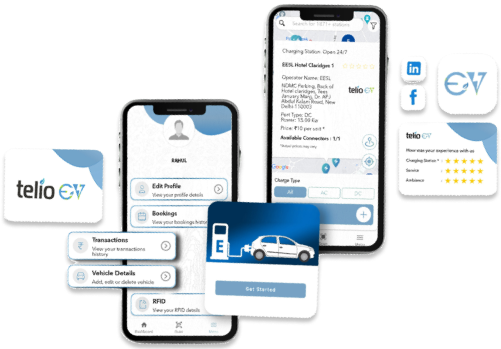Essential Things You Must Know on EV Cms Software
Essential Things You Must Know on EV Cms Software
Blog Article
Enhancing Electric Vehicle Charging with Advanced Management Software

The fast adoption of electric vehicles (EVs) has actually necessitated the development of efficient and user-friendly charging solutions. Central to this development are Electric Vehicle Charging Management Software (EV CMS) and EV Charging Apps, which enhance the charging procedure for both operators and users.
Comprehending EV Charging Management Software
EV Charging Management Software works as a detailed platform that makes it possible for Charge Point Operators (CPOs) and other stakeholders to monitor, manage, and optimize EV charging stations. Key functionalities consist of real-time tracking of charging stations, user authentication, payment processing, and energy management. By integrating these features, the software ensures efficient operation and enhances the user experience.
Key Features of EV Charging Management Software
1. Real-Time Monitoring and Control: Operators can manage the status of charging stations, track energy intake, and address problems immediately.
2. User Authentication and Access Control: The software manages user access, ensuring that only authorized individuals can make use of the charging centers.
3. Payment Processing: It helps with seamless transactions, supporting numerous payment approaches to accommodate diverse user preferences.
4. Energy Management: By optimizing energy circulation, the software minimizes operational costs and supports grid stability.
5. Reporting and Analytics: Comprehensive data analysis help in notified decision-making and strategic planning for network growth.
The Role of EV Charging Apps
EV Charging Apps are developed to provide EV owners with convenient access to charging facilities. These applications provide features such as finding close-by charging stations, real-time availability updates, navigation help, and remote tracking of charging sessions. By enhancing accessibility and user engagement, these apps play a vital role in promoting the adoption of electric vehicles.
Integration with Open Charge Point Interface (OCPI)
The Open Charge Point Interface (OCPI) is a standardized procedure that helps with interoperability in between various EV charging networks. Integration with OCPI permits seamless roaming, making it possible for users to gain access to multiple charging networks with a single account. This interoperability boosts user convenience and broadens OCPI the ease of access of charging facilities.
Benefits of Implementing Advanced Charging Solutions
- Enhanced User Experience: User-friendly user interfaces and trusted services increase client fulfillment and loyalty.
- Operational Efficiency: Automation and real-time tracking decrease manual intervention, decreasing operational expenses.
- Scalability: Advanced software solutions support the expansion of charging networks to fulfill growing demand.
- Revenue Generation: Flexible rates models and efficient payment processing open new profits streams for operators.
Conclusion
The integration of EV Charging Management Software and user-centric EV Charging Apps is critical beforehand the electric vehicle ecosystem. These innovations not only enhance operations for service providers however also substantially enhance the charging experience for users. As the EV market continues to grow, the adoption of such sophisticated solutions will contribute in meeting the increasing need for effective and accessible charging facilities. Report this page